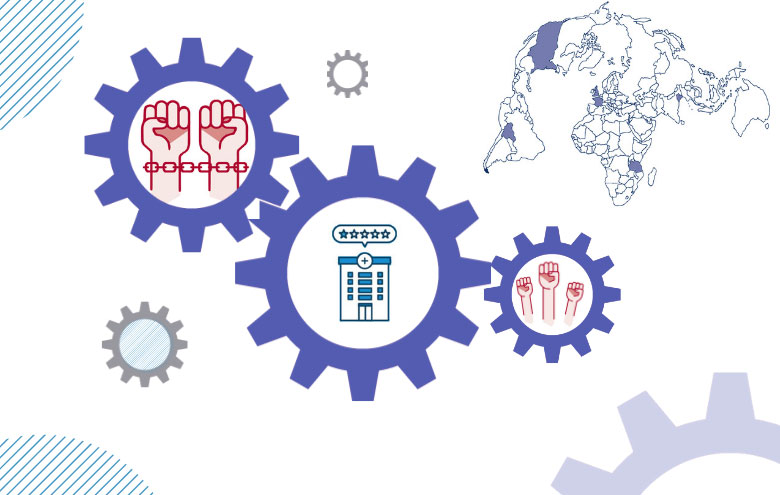Three Dimensions That Make up the Core Experience of Poverty

ATD Fourth World, in partnership with Oxford University, conducted a participatory international research project called “The Hidden Dimensions of Poverty”. The project took place in six countries: Bangladesh, Bolivia, France, Tanzania, the United Kingdom and the United States. For three years, people living in poverty, professionals and academics worked together to clarify how we understand poverty and its multi-dimensional aspects. Research teams defined nine interdependent dimensions common to all countries. The long-term goal of this project is to help develop better policies to eradicate poverty.
There are three dimensions that make up the core experience of poverty: disempowerment; suffering in body, mind, and heart; and struggle and resistance.
These dimensions are very salient to people living in poverty, yet little understood across society. They are not adequately captured in current multi-dimensional poverty indices. Disempowerment is a prevalent experience that both stands alone and closely affects people’s suffering and their struggle to survive and resist.
Disempowerment
Poverty is experienced as lack of control. Options and choices are limited and constrained by life circumstances and the actions of institutions. People experiencing poverty have little margin for error in the choices that they make. Poverty may mean compliance and forced dependence on others resulting in a loss of dignity and dehumanisation. Lack of control with limited choice increases risk and can undermine the chance of getting out of poverty while creating feelings of insecurity and fear.
“Poverty feels like a tangled web that you can never escape.”
(Person in poverty, UK)
“Poor people are powerless in society. They cannot raise their voice because they know nobody listens to them. Rich people control everything.”
(Practitioner, Bangladesh)
Suffering in body, mind and heart
Living in poverty means experiencing intense physical, mental and emotional suffering accompanied by a sense of powerlessness to do anything about it.
Lives are shortened by undermining physical and mental health through low-quality housing, inadequate diet and the daily demands of survival. Many people in poverty cannot practice preventive care because they have no access to healthy food, or they live in polluted areas. Both malnutrition and obesity can be prevalent. Poor health caused by multiple privations leaves people physically and emotionally scarred.
The suffering includes negative thoughts and emotions such as shame related to living conditions and the need to ask for help and assistance, and guilt about being without key resources. When people internalise daily experiences of injustice and dehumanisation, this undermines their self-esteem.
Parents suffer, children suffer and they also suffer for each other. These sufferings re-enforce each other, making life more intolerable. The intensity of suffering can lead to avoiding contact with others for fear of being judged or shamed, so contributing to social isolation.
“Poverty means being part of a system that leaves you waiting indefinitely in a state of fear and uncertainty.”
(People in poverty, UK)
Struggle and resistance
There is an on going struggle to survive, which includes resisting and counteracting the effects of the many forms of suffering brought by privations, abuse, and lack of recognition.
The struggle takes different forms, many of which remain invisible to the rest of society.
The courage shown by people living in poverty is a source of energy often rooted in their hope and desire to give a better life to their children. They call upon strong inner willpower to focus on opportunities for better things for themselves and those close to them.
People living in poverty tend to share the little they have with others. This habit creates the feeling of a shared struggle and solidarity, helping to prevent despair or suicidal thoughts.
When people try to move out of poverty, they do not find the support they expect from institutions designed to enable or empower them.
“If the state takes your child away because of poverty, what is left behind is immense suffering. The action is recognised, but not the suffering, nor what we do to continue, to overcome and to work together.”
(Person in poverty, UK)
“Living in poverty is engaging in an obstacle course with fewer resources than the others. The impact is everywhere, in all dimensions. It is a daily struggle, a battle with enormous obstacles, it is life lived from day to day.”
(Practitioners peer group, France)
“People living in poverty want to ensure that the ways communities resist together are included in the bigger picture. By omitting them, interventions could be imposed on communities that disrupt the ways of being that actually are very helpful among people.”
(Academic, USA)
Download the full “The Hidden Dimensions of Poverty” report.

